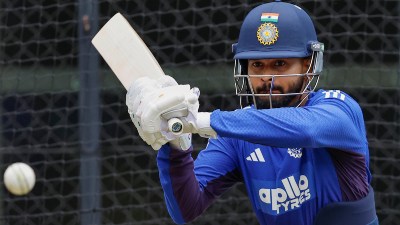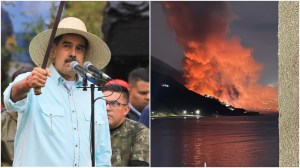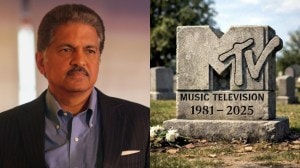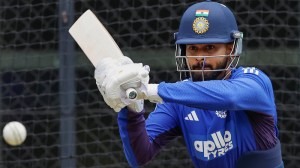The arrest and after
On January 19, Thuingaleng Muivah and a close associate stepped off Thai Airways flight TG 508 from Karachi at Bangkok International Airpo...

On January 19, Thuingaleng Muivah and a close associate stepped off Thai Airways flight TG 508 from Karachi at Bangkok International Airport. The immigration officer, according to one account, asked Muivah, the general secretary of the National Socialist Council of Nagaland I-M and the main Naga negotiator at peace talks with India, a question in Korean. He was carrying a South Korean passport but could not reply. The suspicious officer took him in for questioning. The other Naga went to another immigration counter and slipped out.
Other accounts of the initial arrest and then of Muivah posting bail it has been reported that 200,000 baht bail was set and his subsequent release on January 26 are sketchy. But what happened after that is clear: Muivah left Bangkok apparently in a bid to leave the country and was again held at an airport in Songkhla Province as he was about to board a flight to Penang in Malaysia.
8220;He was carrying a Singaporean passport in the name of Sung Sieng Hui when he wasrearrested,8221; said a court official at Songkhla. For the second offence, Muivah was sentenced on February 1 to one year in jail. This is a stunning personal setback to Muivah for he has never been in prison before although he has been under combat fire and injured in clashes in his 36-year career as one of South Asia8217;s most prominent insurgent leaders. His earlier offences are yet to come to trial entering Thailand on a false passport and then jumping bail.
Muivah is regarded as a very tough person both physically and mentally. But it is not known how he is bearing up to the ignominy of being held on what is a petty criminal offence. Efforts are being made by the NSCN leadership, scattered across Thailand and other parts of South East Asia as well as by their strong allies in the non-government sector in Europe, to secure his release.
Muivah is 66 years old. But his energy, determination and capacity to travel and lobby for his cause are apparently boundless. It is also not that the Thai authoritiesdid not know of his earlier presence in Bangkok, a city that the NSCN has had offices and homes for their leaders and senior cadres for several years. But they have virtually turned a blind eye to all this and Muivah8217;s arrest on a technical offence was almost accidental.
Thai security agencies have been on high alert after the recent incident in Bangkok when Myanmarese rebels captured their country8217;s embassy and held diplomats and staff hostage before being overwhelmed by the local police. Bangkok has been gearing up for the United Nations Conference for Trade and Development and there have been security concerns about Afghan or Chechen militants slipping into the country. Thus, Muivah8217;s arrest was a reflection of this rather than any effort to specifically 8220;get8221; him.
The Thai press has pulled no punches in its criticism of the way Muivah8217;s case was handled. In a blistering attack on internal security, The Nation reported that 8220;despite tough talk about sniffing out foreign terrorists just days before amajor international conference, Thai authorities were humiliated once again when they lost track of a known insurgent and let him skip freely around the country.8221;
The arrest has put the NSCNI-M in a quandary. For the past years, what is called as the 8220;collective leadership8221; of the group has been holding talks with Indian negotiators in various parts of the world Bangkok, Geneva, Davos and now at The Hague in the Netherlands. The latter venue is the location of choice for both sides and a round of talks was scheduled for later this month. But the 8220;collective leadership8221; has essentially meant the team of Issak Chisi Swu, the Chairman of the organisation, and Muivah. In real terms, it is Muivah who does most of the talking.
In his absence, who will accompany Swu to the talks? That is not clear yet although there have been unconfirmed reports tha former Naga Army chief V.S. Atem could fill the gap. This is not clear for the NSCN is a tightly-run organisation and it is unlikely to break up unlessMuivah is unable to reach his associates and cadres for a long period.
The NSCN I-M is closely controlled by Muivah and Swu 8212; who are completely different to each other. The latter is deeply religious and soft-spoken while Muivah is blunt and leftist in his approach. Indeed, one account in the Far Eastern Economic Review has described the NSCN as 8220;a Maoist-inspired group of fundamentalist-Christian separatists.8221;
Muivah8217;s detention in what can only be described as strange circumstances has placed a question mark over the future of the dialogue. It has been postponed not cancelled. Yet, the Government of India is extremely disturbed by Muivah8217;s visit to Pakistan just before the discussions were to be resumed at the Hague. It is believed that he was in Pakistan for at least one week before his ill-fated return to Bangkok. Who he met and why is not clear but Government officials believe that there were interactions with the ISI and that Muivah has visited Pakistan a number of times in the pastyear.
Muivah8217;s presence in Pakistan has stunned the Government especially as he had been participating in peace talks with New Delhi. The visit assumes greater significance in the light of the collapse of relations between India and Pakistan following the Kargil conflict and the hijacking of the Indian Airlines flight from Kathmandu to Kandahar.
What has been also of concern was that Muivah was reportedly accompanied by a younger associate who is in charge of arms purchase from foreign countries.Of equal concern is the impact of the arrest on Nagaland and Manipur, where Muivah8217;s presence and that of his cadres is most visibly felt. There is concern in the hills there and considerable confusion. While the NSCN I-M has demanded a boycott of the Manipur elections February 12 and 22, there are many Nagas who want to vote but are afraid of risking their lives if they defy the NSCN diktat. Yet, not less than 58 Naga candidates have filed their candidatures from the hill constituencies and are openlydeclaring their differences with the militants.
Muivah is a much-romanticised figure. A member of the entrepreneurial Tangkhul tribe of Manipur, which has few members in Nagaland, he undertook his own version of the Long March in 1966, leading a team of 300 Naga rebels to Yunnan in South West China. He opened up a completely new aspect of insurgency and militancy in the North East; other groups also went later to China for training in arms and ideology. He was a trailblazer and one of the major figures of insurgency in South and South East Asia. The Mizos also followed his path.
But in 1976, China stopped assistance to the rebels and the Nagas turned again to Pakistan, which had been helping them since the 1960s. The Pakistan connection is, thus, not new. Pakistani assistance has been low-level, it is believed that this is now likely to be stepped up in the North East and efforts to unite the main insurgent groups in Assam with the NSCN I-M.
Yet, Muivah, who has outwitted and outmaneuvered the IndianArmy, his political foes in Nagaland and his insurgent rivals for over 35 years, is also feared and disliked by Nagas and others who believe that his group has been responsible for the deaths of numerous opponents. He suffered a split in his own organisation in 1988 after one group led by S.S. Khaplang launched an armed attack on Muivah.
Recently, following the abortive assassination attempt on Nagaland Chief Minister S.C. Jamir, the state government announced a 10 lakh rupee award for the capture for a Muivah aide who is the commander of the 8220;Naga Army.8221;Clearly, the Government of India would need to resolve these obvious internal contradictions. On the one hand, it is negotiating with the NSCN abroad. Yet, this very organisation is involved in incidents in Assam, Nagaland and Manipur and is accused of attacking the Nagaland Chief Minister.
- 01
- 02
- 03
- 04
- 05































